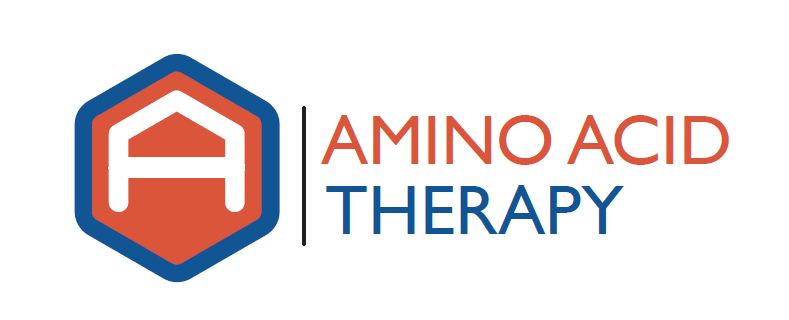There is probably no other area that has people more confused in regards to amino acid therapy than the testing used to determine a person’s unique amino acid needs. There are many tests out there claiming to test your “neurotransmitter levels” via a urine or blood test. We have run samples with many of these labs. We have found that almost all of them are inaccurate and/or are misleading with their interpretation of the test results.
 Before we discuss how to properly assess one’s amino acid needs through testing, I want to summarize what “neurotransmitter testing” is not. (8-10)
Before we discuss how to properly assess one’s amino acid needs through testing, I want to summarize what “neurotransmitter testing” is not. (8-10)
- Urinary neurotransmitter levels are NOT indicative of neurotransmitter levels in the central nervous system. Said differently, urinary neurotransmitter testing can NOT be used to test the levels of neurotransmitters present in the brain.
- Urinary neurotransmitter testing can NOT be used to determine neurotransmitter imbalances in the brain.
- Urinary neurotransmitter levels are NOT clinically useful if a person is not taking balanced amino acid precursors for at least one week prior to testing.
- Neurotransmitter testing can NOT be used as a method to determine amino acid needs before starting amino acid therapy.
- There are NOT many laboratories in the United States that have provided consistent, reproducible results in our clinical practice. In fact, we have only found one.
Much of the confusion about neurotransmitter testing is propagated by labs that ‘sell’ neurotransmitter testing as a way to sell products. Unfortunately, this kind of slick marketing is sold to doctors and other health care providers who then ‘market’ these false ideas, inadvertently leading to more confusion and misunderstanding.
However, even amidst all the confusion and misinformation, urinary testing, properly used and interpreted, can be incredibly insightful to help guide the proper use of amino acid therapy.
What’s “Neurotransmitter Testing” Mean Anyway?
I believe the confusion begins with the very name “neurotransmitter testing.” Almost any lab can get set up to measure urinary neurotransmitters (also called monoamines). The issue is that the results of most urinary neurotransmitter tests are not actionable, which means they aren’t useful to help direct amino acid therapy.
This is because measuring neurotransmitters in the urine does not provide any useful data unless (a) a person is taking a recommended dose of amino acids for a sufficient amount of time and (b) the results are interpreted by a practitioner trained in the proper use of amino acid therapy and laboratory assessment. Just because you can measure something doesn’t mean it is useful.
We will discuss the reasons for these two requirements here. The latter criteria (proper training) is probably the most important from a clinical perspective, because it takes proper training to understand lab results. Unfortunately, few practitioners have been properly trained in the proper use and interpretation of amino acid therapy. To my knowledge there is only one organization, NeuroResearch, which provides the training necessary to properly utilize amino acids and urinary testing to manage the neurotransmitter imbalances that are the underlying cause of many disorders and diseases. If you are working with a health care provider using amino acid therapy, be sure they were trained at one of NeuroResearch’ s programs.
 As for the first criteria (taking a recommended dose of amino acids for a sufficient period of time), there is much confusion. Urinary neurotransmitters exist in one of two states. The “endogenous” state is the normal day-to-day state that occurs when a person is not taking any amino acids. The “competitive inhibition state” occurs when significant amounts of both serotonin and dopamine amino acid precursors are being taken simultaneously. (8, 10-14) Peer-reviewed research has shown that urinary neurotransmitter testing is only useful when a person is in the competitive inhibition state. (8-11) Therefore, taking a ‘baseline’ assessment of urinary neurotransmitters does not provide any useful data.
As for the first criteria (taking a recommended dose of amino acids for a sufficient period of time), there is much confusion. Urinary neurotransmitters exist in one of two states. The “endogenous” state is the normal day-to-day state that occurs when a person is not taking any amino acids. The “competitive inhibition state” occurs when significant amounts of both serotonin and dopamine amino acid precursors are being taken simultaneously. (8, 10-14) Peer-reviewed research has shown that urinary neurotransmitter testing is only useful when a person is in the competitive inhibition state. (8-11) Therefore, taking a ‘baseline’ assessment of urinary neurotransmitters does not provide any useful data.
For those of you familiar with laboratory testing, it would be similar to running a glucose tolerance test without taking a set amount of sugar. A glucose tolerance test measures your blood sugar levels at set times (usually 1, 2, and 4 hours) after consuming a specific amount of pure sugar (usually 75 grams). It requires that you fast for 8-12 hours before testing and consume nothing except the 75 grams of sugar before initiating the test. If you eat food before the test or do not take the exact amount of sugar at the right time, the results would be worthless from a clinical perspective – they would provide you numbers, but the numbers wouldn’t mean anything.
Likewise, simply running a urinary neurotransmitter test without taking a set amount of amino acids at the specified times results in a bunch of numbers on a page that are of no clinical value. The numbers are there, but they don’t mean anything. In order for the test to be accurate, you must be taking a set amount of amino acids for at least 7 days before testing.
What is Really Being Measured in Neurotransmitter Testing?
The confusion over testing urinary neurotransmitter levels is propagated by the very name “neurotransmitter testing”. This is because the actual levels of neurotransmitters found in the urine have nothing to do with the neurotransmitter levels in your brain. (15-19)
Even so, the urinary neurotransmitter levels do provide valuable information when someone is in the competitive inhibition state to help guide amino acid therapy. This is because there is a relationship between amino acid dosing, urinary output of neurotransmitters and the function of specific ‘gates’ in the kidneys called ‘transporters’. It is the transporter function which is the key to using urinary neurotransmitter testing to achieve clinically useful results. (11, 20, 21)


Hi, in this article, I see reference #s but no references. Would you mind sharing the references that correspond with this article? Great read btw.
Hi Nate – thanks for contacting us; you should be able to find the references you are looking for here: https://amino-acid-therapy.com/resources-and-testing/.
If you need anything else, please let us know –
Sincerely,
Dr. Chad
How do I locate a doctor trained on amino acid therapy. I live in New Jersey. Thanks in advance.
Hi Jessica,
You can contact NeuroResearch at http://www.neurosupport.com to find a provider near you; if there is not a provider near you, we may be able to work with you via Skype/phone.
Sincerely,
Dr. Chad
Hi Jessica – thanks for contacting us. To find a provider near you, please contact NeuroResearch at http://www.neurosupport.com.
Good luck!
Dr Chad
Hi … Just curious, knowing that psychotropic drugs are used to treat some such “chemical imbalances,” are any tests accurate for discovering if a person has an “imbalance”??
Hi Hayley,
To my knowledge, there are no proactive tests to determine conclusively if someone has neurotransmitter dysfunction. There are genetic tests that can determine a predisposition to such imbalances and the testing mentioned here (https://amino-acid-therapy.com/oct-assay-interpretation/) that we use to determine how to optimize a person’s OCT/neurotransmitter function as well as amino acid and nutritional tests that can be used to determine if the proper neurotransmitter precursors are available, but I do not know of a direct method to ascertain imbalances.
Hope that helps –
Dr. Chad
My 89 year old mother has Parkinson’s and now sundowners syndrome.She takes macuna to treat the PD . what is the cause of sundowners and how do you treat it Kathy
Hi Kathy,
Thanks for the inquiry; unfortunately, I am not going to be much help for this one, as I do not work and am unfamiliar with sundowners syndrome.
Sorry I couldn’t be of more help –
Sincerely,
Dr Chad
http://www.neurosupport.com. is not a valid link. When I clicked on this or tried copying and pasting it into my web browser, I got an “Under construction” message from the website, so in my opinion, this sounds pretty “Bogus”!!
Hi Susie – thanks for letting my know about this – they did a major overhaul on their site this past week and it’s back up, so you should be able to click through now if you’d like.
Sincerely,
Dr. Chad
I recently contacted Neuro Research and they stated that they do not offer neurotransmitter testing, and they do not have a list of doctors that do offer it.
How do I go about finding a qualified neurotransmitter testing, that meets your requirements?
Hi Dante – great question. I believe the confusion may be in the question asked. You can find a provider through NeuroResearch that practices amino acid therapy. Once you are working with a provider, they can order the necessary testing through DBS Labs in order to optimize your amino acid dosing.
Hope that helps –
Dr Chad
hi,
I am writing from Nairobi. How would I access this treatment?
Hi Beth – you’d need to contact NeuroResearch Clinics in Duluth, MN to see if they have anyone in your area that could assist you – good luck!
Sincerely,
Dr Chad